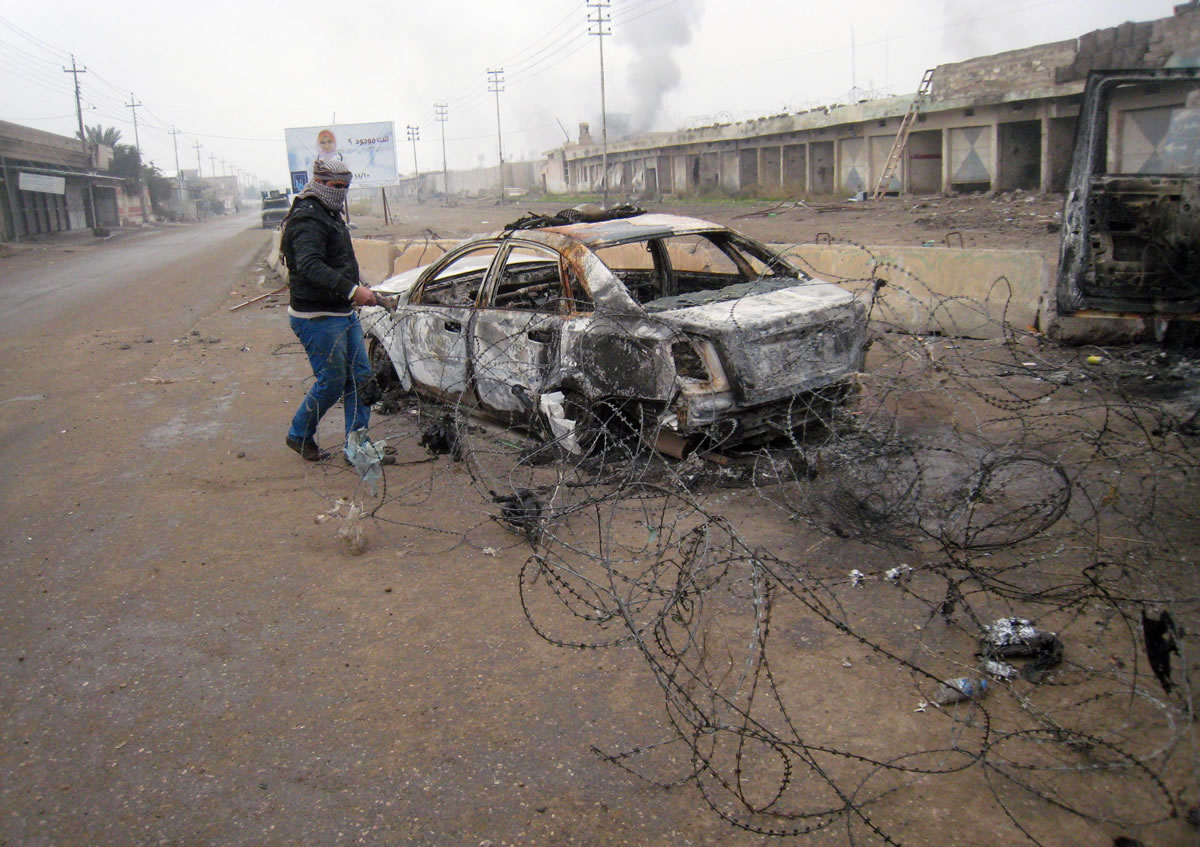BAGHDAD — Residents started to trickle back to the besieged city of Fallujah on Friday as militants and government forces both appear to be preparing for a long standoff. Al-Qaida-linked fighters and tribal gunmen are camped on the outskirts of the city, with Iraqi army and police stationed nearby.
A tense calm has settled over the city, although sporadic street fighting rattled Ramadi and surrounding areas in Sunni-dominated Anbar province, a vast desert region west of Baghdad that was once a major battleground for U.S. troops.
The extremist militants, emboldened by fellow fighters’ gains in the civil war in neighboring Syria, have tried to position themselves as the champions of Iraqi Sunnis angry at the Shiite-led government over what they see as efforts to marginalize them.
Violence spiked after the Dec. 28 arrest of a Sunni lawmaker sought on terrorism charges and the government’s dismantling of a year-old Sunni protest camp in Ramadi, the provincial capital, and Iraqi police were forced to retreat from the city centers as black masked gunmen overtook Fallujah and parts of Ramadi last week, burning down police stations and posting guards outside strategic areas.
Iraqi troops have taken up positions in and around both cities but have not launched major urban offensives, fearing that likely civilian casualties could incite Sunni anger and push moderate tribal leaders to side with the extremists.
Defense Ministry spokesman Mohammed al-Askari told The Associated Press on Friday that the government’s patience would not last forever.
“If there is no other solution, then the security forces and allied tribal fighters will enter these cities,” al-Askari said.
Clashes broke out again Friday, this time between Iraqi special forces and militants in the village of al-Bubali, between Fallujah and Ramadi.
Roadside bombs planted around the village damaged several army vehicles, a police officer said, speaking on condition of anonymity because he was not authorized to talk to the media. There was no immediate word on casualties.
Central areas of Fallujah, about 40 miles west of Baghdad, have been calm in recent days, according to accounts from residents and international observers. That could be an indication that at least some al-Qaida fighters heeded a call by influential tribal leaders earlier in the week to pull out of town or face confrontations not only with the army but also with fellow armed Sunnis who want the outsiders gone.
Many of the al-Qaida fighters and some armed local tribesmen who want to keep government forces out are now stationed in largely unpopulated areas on the outskirts of Fallujah, overlooking approaches to the city from the main highway that connects Baghdad with Syria and Jordan.
But other anti-government gunmen, their faces hidden by scarves, remain on the streets of the city in an intimidating show of force meant to prevent Iraqi forces from militarily retaking the city and deter would-be bank robbers and other looters.
Some residents have started to return to Fallujah, often only briefly to check that their houses are safe. Markets have begun to reopen as well, restoring some sense of normalcy to the city.
But the situation remains tense, with many police stations abandoned after they were torched by militants and health care facilities running short on supplies.
“The government services and medical situation in Fallujah is very bad because of the absence of civil servants and policemen. The tribal gunmen are in control of the city,” said Dhari al-Arsan, deputy governor of Anbar, who lives in Fallujah.
Other armed tribesman are firmly opposed to al-Qaida’s presence in the area.



